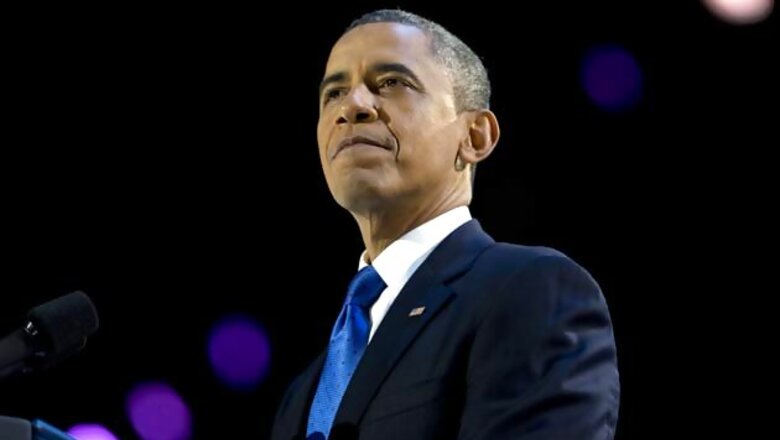
views
Bangkok: US President Barack Obama denied on Sunday his upcoming trip to Myanmar was an endorsement of the government there, calling it an acknowledgement of the progress made in shaking off decades of military rule and encouragement for it go further. On Monday, Obama will become the first serving US president to visit Myanmar, also called Burma, part of a three-country Asian tour that, as his first post-election trek abroad, will show he is serious about shifting the US strategic focus eastwards.
Some human rights groups object to the Myanmar visit, saying Obama is rewarding the country's quasi-civilian government before democratic reforms are complete. But he told a news conference in Thailand he knew there was much still to do. "I don't think anybody is under the illusion that Burma's arrived, that they're where they need to be," he said.
"On the other hand, if we waited to engage until they had achieved a perfect democracy, my suspicion is we'd be waiting an awful long time," he added. "One of the goals of this trip is to highlight the progress that has been made and give voice to the much greater progress that needs to be made in the future." Late on Sunday, state television in Myanmar said 66 more prisoners would be released on Monday, bringing to 518 the number released over the past week.
The previous batch did not appear to include any political prisoners, but a senior prison department official, who declined to be identified, told Reuters that Myint Aye, a prominent human rights activist, would be among those freed on Monday. It was not clear if other political detainees would be included. Obama has made the freeing of all political prisoners one of the conditions for the full lifting of sanctions imposed on Myanmar for rights abuses under the junta.
Obama will meet President Thein Sein, a former junta member who has spearheaded political and economic reforms since taking office in March 2011, and opposition leader Aung San Suu Kyi, who led the struggle against military rule and, like Obama, is a Nobel Peace Prize laureate. She is now a lawmaker. "I'm not somebody who thinks that the United States should stand on the sidelines and not want to get its hands dirty when there's an opportunity for us to encourage the better impulses inside a country," Obama said.
"And, in part, I'm taking my guidance from what Aung San Suu Kyi, who I think knows quite a bit about repression in Burma, sees as the best means to continue the development and progress that's being made there." White House officials have said Obama would press Myanmar's leaders to restore calm to the western part of their country and bring instigators of ethnic violence there to justice.
After a recent meeting with senior Obama aides, rights activists left satisfied that Obama wanted to push hard on human rights and political and economic reform in closed-door talks with Thein Sein and in his public remarks, including a speech. After Myanmar, Obama will attend an East Asia summit in Cambodia as he seeks to recalibrate US economic and security commitments to counter China's influence at a time when America is disentangling itself from wars in Iraq and Afghanistan.
But his attention will be divided during his travels as he faces a simmering crisis in the Gaza Strip pitting Israel against Hamas militants, plus economic problems at home. Obama, who was born in Hawaii and spent part of his youth in Indonesia, has called himself America's first "Pacific president".
The US administration regards Thailand as a key ally for advancing the "Asia pivot" that Obama announced last year with an eye to an increasingly assertive China. At a joint news conference with Obama, Thai Prime Minister Yingluck Shinawatra announced Thailand would join talks on deeper trade ties with the United States and other countries under the Trans-Pacific Partnership (TPP).
The TPP is a trade pact being negotiated between the United States and Australia, New Zealand, Chile, Peru, Vietnam, Singapore, Malaysia and Brunei plus, more recently, Canada and Mexico. It aims to tear down barriers to trade, going further than existing bilateral and other pacts, although some in Thailand worry that its provisions could conflict with rules governing a Southeast Asian economic community to be established in 2015.
As part of the itinerary in Bangkok, a monk in bright orange robes gave Obama and Secretary of State Hillary Clinton a tour of the centuries-old Wat Pho temple, taking them past its massive reclining Buddha. Somehow, the fiscal problems back in Washington came up.
"We're working on this budget. We're going to need a lot of prayer for that," Obama was overheard telling the monk, a light-hearted reference to a fiscal showdown in Washington over tax increases and spending cuts that kick in at the end of the year unless Obama and congressional Republicans can reach a deal. Security had been tight at Bangkok's old Don Muang airport for Obama's arrival but was far less visible in the historic centre of the city at the temple, although roads around the building were closed and tourists were not allowed in.
From there, Obama left for an audience with King Bhumibol Adulyadej, 84, the world's longest-reigning monarch, who has been in hospital recovering from an illness since September 2009. The king's softly spoken words made Obama smile at one point. "Elections in the United States are very long but it's very gratifying to know people still have confidence in me," the president responded.










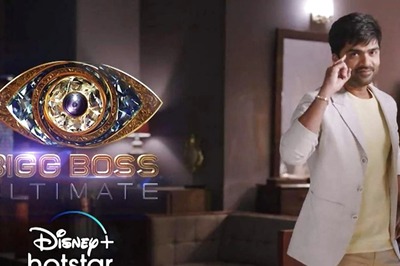
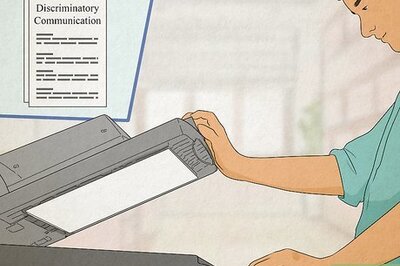



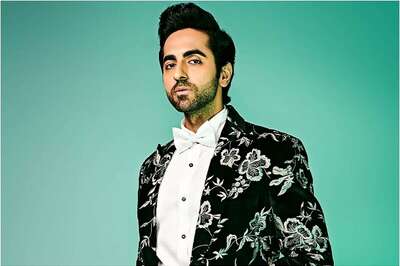


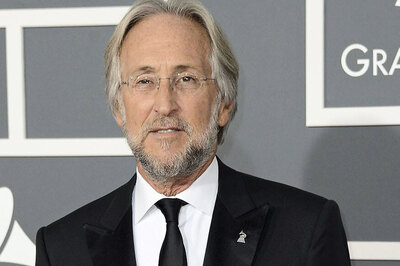
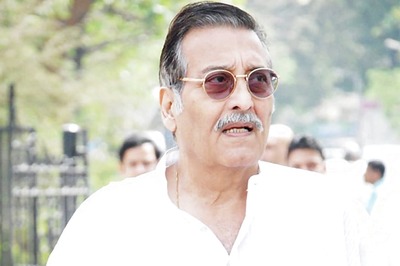
Comments
0 comment